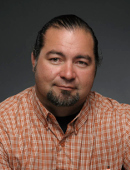The Sharing of Indigenous Knowledge Through Academic Means by Implementing Self-reflection and Story

Dr. Sweeney Windchief
Assistant Professor of Adult & Higher Education
Montana State University, Bozeman
Wednesday, August 1, 9:30-10:30, SUB Ballroom A, Keynote Address
Indigenous research scholars navigate a complex landscape that is impacted by their relationships, as well as the roles and responsibilities that come with both their Indigenous and professional positionality. This presentation contemplates the passing of Indigenous knowledge through academic means by implementing self-reflection and story. Concluding that Indigenous research is for Indigenous community, this presentation explores questions such as; what are the “Rules” to using Indigenous methodologies in research? How can we use Indigenous methodologies in research that reflect the nuance of our community identity? How can we reciprocate in the sharing of Indigenous knowledge? Finally, how can we share Indigenous knowledge in a way that maintains cultural protocol? The practical implications of this work include support for Indigenous methodologies and considers the cultural context of the ISFIRE community. Future scholarship connected with this work includes complicating the perceptions of research from 1) academic perspectives and 2) Indigenous community perspectives which can be considered internationally, nationally, or locally.
Bio – Sweeney Windchief, a Nakoda member of the Fort Peck Tribes in northern Montana, serves as an Assistant Professor of Adult and Higher Education at Montana State University. His research interests include higher education specifically under the umbrella of Indigenous intellectualism. Sweeney is currently a Co-PI on an NSF sponsored AGEP-T Grant entitled: Pacific Northwest Circles of Success in Mentoring Of Students (PNW-COSMOS) and a grant for improving the pathways for Rural and American Indian Students Entering Computer Science Via Storytelling. His teaching privileges include critical race theory, Indigenous methodologies in research, law and policy in higher education and institutional research. His outreach and community engagement activities include; MSU’s American Indian Student Center Executive Committee, the College Horizons advisory council, and a member of the AERA Indigenous Peoples of the Americas (IPA) SIG awards committee. He and his wife Sara have two sons who help keep things in perspective.
